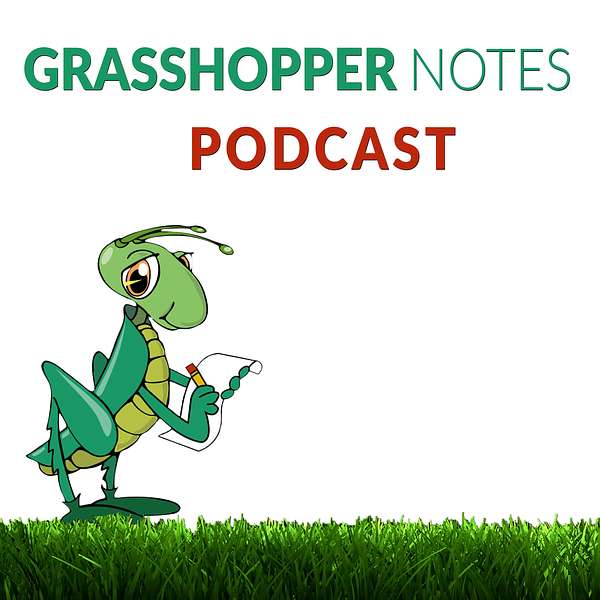
Grasshopper Notes Podcast
The Grasshopper Notes Podcast is hosted by John Morgan the man who has been billed as America’s Best Known Hypnotherapist.
John’s podcasts are a collection of guided meditations and bite-sized, mini podcasts which open you to new ways of thinking, communicating, and responding. You get a finer appreciation of how your mind works and how to use your internal resources to your best advantage.
See a video of John's background at the following link: https://www.youtube.com/watch?v=XbCPd00ok0I
In short, John Morgan is a people helper. Explore this channel and see what he can help you discover.
Grasshopper Notes Podcast
When Is OK Not OK?
Use Left/Right to seek, Home/End to jump to start or end. Hold shift to jump forward or backward.
There's both a genuine and fake OK. Find out how to tell the difference in this mini podcast.
Grasshopper Notes are the writings from America's Best Known Hypnotherapist John Morgan. His podcasts contain his most responded to essays and blog posts from the past two decades.
Find the written versions of these podcasts on John's podcasting site: https://www.buzzsprout.com/1628038
"The Grasshopper" is the part of you that whispers pearls of wisdom that seem to pop into your mind from out of the blue. John's essays and blog posts are his interpretations of these "Nips of Nectar." Others have labeled his writings as timeless wisdom.
Most of the John's writings revolve around self improvement and self help. They address topics like:
• Mindfulness
• Peace of mind
• Creativity
• How to stay in the present moment
• Spirituality
• Behavior improvement
And stories that transform you to a wider sense of awareness that presents more options. And isn't that what we all want, more options?
John uploads these podcasts on a regular basis. So check back often to hear these podcasts heard around the world. Who wants to be the next person to change?
Make sure to order a copy of John's new book: WISDOM OF THE GRASSHOPPER – 21 Days to Creativity. These mini-meditations take you inside where all your creative resources live. And you'll come out not only refreshed but recommitted to creating your future.
It's only $16.95 and available at BLURB.COM at the link below. https://www.blurb.com/b/10239673-wisd...
Also, download John's FREE book INTER RUPTION: The Magic Key To Lasting Change. It's available at John's website https://GrasshopperNotes.com
When Is OK Not OK?
That’s a question The Grasshopper tossed out one morning a long time ago.
At first, it felt like a riddle — but I had a hunch that if I kept exploring, something would eventually click. And it did.
I discovered that real OK is something you feel — a physical sensation in your body. Fake OK, on the other hand, lives in your head.
You know the kind — when you keep telling yourself, “It’s fine, it’s OK,” hoping that’ll make it true. But that’s not real OK. That’s a knockoff version.
Here’s what I found: when your head says “OK,” but your body is flashing “Not OK,” it’s not OK.
It’s kind of like that old baseball rule — a tie goes to the runner. If the ump senses the ball hits the glove at the same time the runner’s foot hits the base, the runner’s safe.
So, if you’re getting an OK signal in your head and a not-OK signal in your body, rule in favor of your body. Every time.
And here’s something interesting — your body’s signal always shows up first. If we’re not tuned in, we miss it, and default to whatever story our head is telling. When head and body agree, great. When they don’t — that’s when the trouble starts.
OK isn’t OK when it’s just mental. When you ignore the feeling in your body, you’re setting yourself up for discomfort.
Bottom line: Trust your tingle. It's the best barometer you’ve got for finding genuine OK.
All the best,
John
